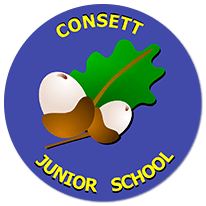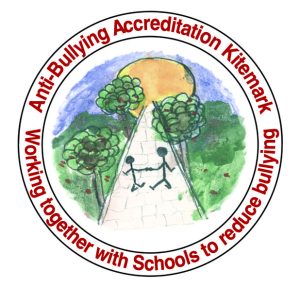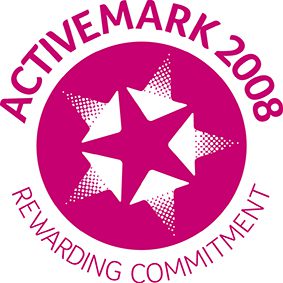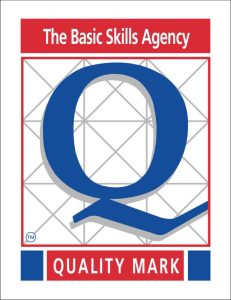Intent
At Consett Junior School, we are dedicated to encouraging all children to be passionate about reading and writing. We are determined that all children will become highly competent, lifelong readers and writers by the end of their time with us. We view everything as an opportunity for reading, no matter how small. Teachers model the joy and pleasure of reading on a daily basis. It is our intention to immerse pupils in the wonders of quality texts to instill a love for reading, a passion for discovery and a confidence to explore their imagination.
During their time at Consett Junior School, all children will be exposed to a high-quality education in English. This will teach pupils to speak and write fluently so that they can communicate their ideas and emotions to others, and through their reading and listening, others can communicate with them. We recognise that mastery in phonics is fundamental to children being able to access a broad range of fiction and non-fiction texts across the curriculum. We strive to achieve this by having personalised and targeted phonics sessions and interventions to address the needs of all learners.
Implementation
As part of our English Curriculum we follow a Long Term Plan to fulfill all the aspects of the National Curriculum; below is our current Long Term Plan
| TERM | Autumn | Spring | Summer | |||
|---|---|---|---|---|---|---|
| YEAR GROUPS | Term 1 | Term 2 | Term 3 | Term 4 | Term 5 | Term 6 |
| Year 3 | The True story of the 3 Little Pigs | The blue umbrella & The Stone Age Boy | Skara Brae | I Asked the Little Boy who cannot see. | The Secret of the Black Rock | How a Robot Dog works |
| Year 4 | The Lock and Key Up in the Attic | Man on the Moon Christmas senses Poem | Harry Potter Limericks | Harry Potter To be confirmed | The Creakers | The Creakers |
| Year 5 | The Lego Story The Ghosts of Pere La chaise | The Nowhere Emporium | The Tales of the Three Brothers Usain Bolt | Holes | Road's End For the Birds | Murder most Unladylike |
| Year 6 | Wonder | Remembrance Poetry The Last Post Beyond the Lines Alma | Titanium The Piano | Skellig | The Lighthouse SATs Robinwood themed Writing | Planet Earth Francis Day of the Dead Transition |
Reading
- At Consett Junior School, we recognise that fluency is the bridge from phonics to comprehension. Pupils who are working at developing their fluency access our reading programme, Accelerated Reader, at both school and home. Comprehension skills are developed through both Accelerated reader and explicit teaching following the reading VIPERS method.
- Pupils who are unable to access Accelerated Reader take part in personalised and targeted phonics interventions with an experienced phonics teacher. Depending on the need of the pupil and the gaps in their learning, this can be 1:1 or small group sessions. We follow the same phonics scheme as the infant school, to ensure continuation for the children.
- During the week, each child will read 1:1 with their teacher or teaching assistant at least once. The lowest 20% of readers will read with an adult daily.
- The use of Accelerated Reader’s STAR reading test accurately assesses progress and reading ages of the children. The lowest 20% of each class are identified using this.
- Children at Consett Junior take 4 STAR reading tests per year and the lowest 20% is regularly updated to ensure the correct children are being read with daily.
- Teachers identify children who are not reading at home at least 3 times per week, after the lowest 20%, these children are priority for reading as often as possible.
- After each STAR reading test, a progress report for each class is created so that every teacher knows their target children to focus on over the next term.
- All staff closely monitor ZPD levels using Accelerated Reader to ensure that children are consistently reading books matched to their level. Progress is monitored to make sure the children are moving up the Accelerated Reader system effectively.
- Reading fluency intervention (Reading Theatre) is in place for children struggling with fluency.
- Reading comprehension is taught 2 x 30 minute sessions a week, following reading VIPERS.
What are Vipers?
VIPERS is an anagram to aid the recall of the 6 reading domains as part of the UK’s reading curriculum. They are the key areas which we feel children need to know and understand in order to improve their comprehension of texts.
VIPERS stand for…
Vocabulary
Inference
Prediction
Explanation
Retrieval
Sequence or Summarise
- There is a big focus on modelling answers to the children so that they learn how to tackle each type of question.
- All VIPERS are linked to the class novel or a topic the children are studying elsewhere in the curriculum.
- Reading karate is our new reading at home incentive, children are encouraged and rewarded for reading at home. This has resulted in more children reading at home.
- There is a weekly, whole school reading competition using Accelerated Reader. The class who reads the most words of the course of the week is rewarded with an extra break time. This has resulted in children actively reading during Accelerated Reader sessions and the weekly word count has significantly improved.
- All children enjoy an end of day story read to them by their class teacher. The class choose which book they would like to share together and enjoy. Children often discuss this text and share which parts they have enjoyed.
- Reading for pleasure boxes have been set up for break and lunch times. Each year group has a box of age-related texts, newspapers and magazines which are taken outside during breaktimes for the children to enjoy. Throughout the year, the English lead meets with children from each class to find out which books the children are enjoying and to see if the children have any requests or recommendations for books to go in the boxes.
- Each class has a trip to the local library every half term. The first session was a library tour and guide on how to use the library. Each class has a library card and children spend an afternoon at the library each half term reading and changing their books. Children have been encouraged to get their own library card and many have done this.
- A list of the top children’s books for each year group has been sent home and uploaded on the app so parents can see age-appropriate books to get from the library/buy for home use.
- Class novels are based around the class average ZPD level, this ensures appropriate challenge for each class and this progresses throughout the year.
Writing
- LKS2 to use Jane Considine ‘The Write Stuff’ scheme. Focus is on modelling and breaking sentences down so all children are constantly progressing and building on prior knowledge.
- UKS2 to use ‘The Literacy Shed Plus’ for text/novel and video units alongside application weeks. This will aid progress and develop applying skills to writing for a purpose.
- Carefully designed text-led learning journeys, with a clear starting point and end outcome.
- Differentiated tasks which are designed to support and challenge all learners.
- Opportunities to apply taught skills in other areas of the curriculum
- Weekly grammar topic to be incorporated into writing sessions.
- A piece of long writing should be produced every week, however, some text types may take longer e.g. newspaper reports, professional judgement is used when planning.
- Children are given the opportunity to apply their knowledge and write for a purpose, so build application weeks into your planning.
- All grammar topics are carefully chosen to fit in with the long term plan. Staff think about which topics fit best with each writing unit so children can apply their learning to their writing.
- Grammasaurus, Classroom Secrets and Deepening Understanding are used for resources and challenges.
Spelling
- The Jane Considine ‘The Spelling Book’ should is used for spelling sessions. The book includes daily and weekly spelling activities that are built on the fundamentals of teaching spelling with strong phonic foundations.
It is split into a 2-week cycle:
Week 1 – A 30-minute investigation session
A 20-minute session
Week 2 – 5 x 10-minute tasks/challenges.
Handwriting
- Teach Handwriting scheme introduced in Autumn 2021
- 1 x 30-minute session per week
Impact
We strive to ensure that our children’s attainment is in line with or exceeds their potential when we consider the varied starting points of all our children.
We monitor attainment and progress using iTrack and Accelerated Reader STAR reading assessments and provide intervention for those children below ARE. We always consider the age-related expectations for each year group to support children and close gaps in learning.
Our intentions are that our English curriculum will ensure our pupils are academically prepared for life beyond primary school and throughout their educational journey.








